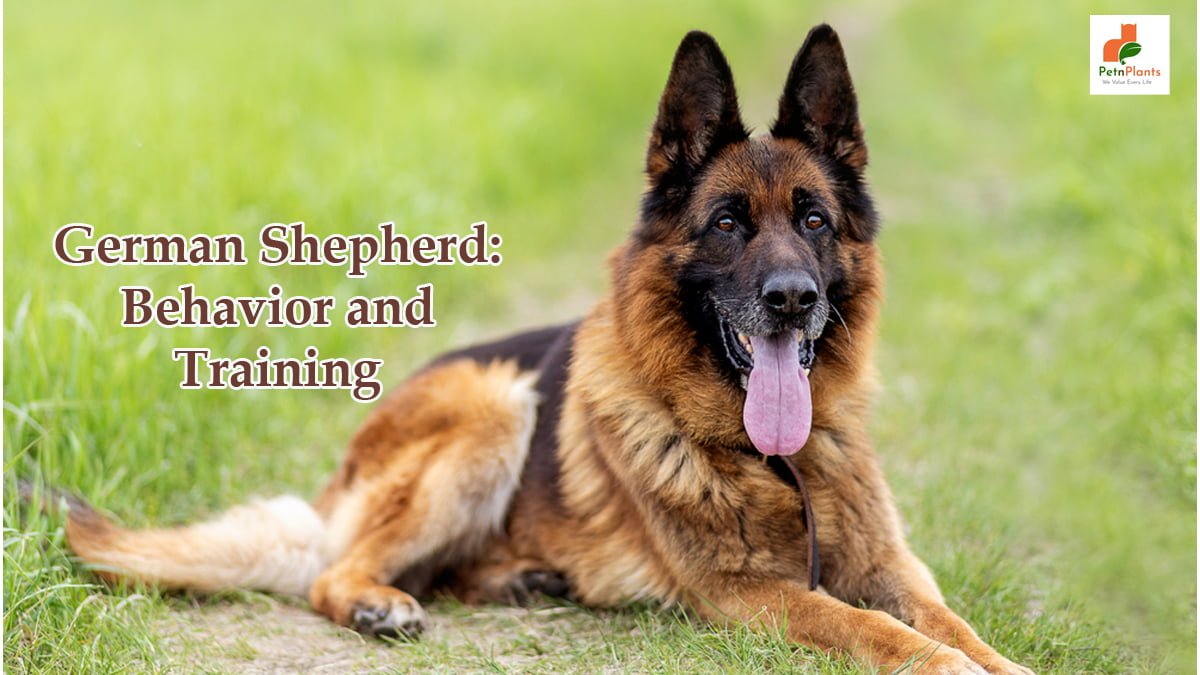Latest
Pets
Plants
How Indoor Plants Can Affect Pet Behavior, Stress & HealthJanuary 12, 2026
We Value Every Life

The German Shepherd is a popular dog known for its loyalty, obedience, and intelligence. However, these dogs can also be strong-willed and stubborn, making training them challenging. This blog post will explore the German Shepherd’s behavior and how to best train them, and we will cover topics such as socialization, obedience training, and more. By the end of this post, you will better understand how to train your German Shepherd so that they can be the best possible dog they can be.
The German Shepherd is a relatively new breed of dog, with its origins dating back to the late 19th century. The breed was developed in Germany as a working dog and was originally known as the German Shepherd.
The German Shepherd was bred from various sheepdog breeds, including the English Shepherds, the French Shepherds, and the Belgian Shepherds. The breeding program aimed to create a dog that was intelligent, agile, and had a strong work ethic.
The German Shepherd quickly became popular as a working dog and was used for herding, guarding, and tracking tasks. The breed eventually spread to other countries, becoming equally popular as a family pet and working dog.
Today, the German Shepherd is one of the most popular breeds of dogs in the world. The breed is known for its loyalty, intelligence, and courage. German Shepherds make excellent companion animals and are often used as service dogs or working dogs in various settings.
Regarding temperament, German Shepherds are often described as loyal, protective, and obedient. They are also known for being brave and confident. However, German Shepherds can have unique personalities like any other dog breed. Some may be more laid back, while others may be more active. Ultimately, it is important to take the time to get to know your German Shepherd before making any decisions about its temperament.
A German Shepherd Dog is a great choice if you are looking for a loyal companion. They are incredibly protective of their family and will do everything they can to keep them safe. German Shepherds are also very obedient and follow their owners’ commands without question. This makes them great candidates for training, whether for obedience or other activities such as agility or tracking.
While German Shepherds make great family pets, they may not be suitable for everyone. Due to their loyalty and protection instincts, they can be territorial and may not do well with other animals in the home. They also require a lot of exercise and stimulation to stay happy and healthy, so families who cannot provide this may want to consider another breed of dog.
Suppose you’re thinking of getting a German shepherd; congratulations! You’re on your way to welcoming a loyal, loving, and protective friend into your family. But before you bring your new pup home, it’s important to know a little about German shepherd behavior and training.
German shepherds are highly intelligent dogs who love to please their owners. With the right training, they can be obedient and well-behaved family pets. However, without proper guidance, they may become destructive or aggressive.
Here are some tips for training your German Shepherd:
One of German Shepherds’ most common health issues is hip and elbow dysplasia. This is a condition where the bones don’t fit together properly, which can cause pain and lameness. German Shepherds are also susceptible to allergies, skin problems, and digestive issues.
German Shepherds are a high-energy breed and require a lot of exercises. Without enough exercise, they can become bored and destructive. Ensure you give your German Shepherd plenty of opportunities to run and play.
As with any breed, keeping up with your dog’s vaccinations and routine vet check-ups is important to help prevent health problems.
A German Shepherd is a loyal and protective breed of dog that makes an excellent companion. They are known for their obedience and trainability, making them a popular choice for families and individuals. German Shepherds require regular exercise and plenty of mental stimulation to stay happy and healthy. Here are some tips on how to care for your German Shepherd:
Looking to adopt a German Shepherd? Many German Shepherd rescue organizations can help you find the perfect dog for your family. These organizations provide a vital service in rescuing and rehoming German Shepherds who have been abandoned, abused, or neglected.
When adopting from a rescue organization, it is important to do your research to ensure that you choose a reputable organization with healthy animals. Here are some things to look for when choosing a German Shepherd rescue organization:
-The organization should have a written adoption policy outlining adopters’ requirements.
-The staff should be knowledgeable about the care and training of German Shepherds.
-The dogs in the organization should be well-cared for and healthy.
-The organization should be willing to answer any questions about adopting or caring for a German Shepherd.
2022 promises to be an exciting year for those looking to relocate and find a new place to call home. With so many great cities in the US, it can be hard to narrow down your options and decide which city would best suit you. We hope that our list has provided some valuable insights into what makes some of these cities great places to live. From vibrant communities and booming economies, living in one of these ten cities could give you the lifestyle you’ve always dreamed of!
0